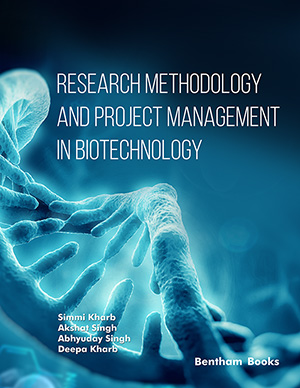
Abstract
Among the difficulties encountered in the treatment of cancer are the physico-chemical properties of the chemotherapeutic agents; in particular low water solubility and low stability, resulting in poor efficacy. Due to their capability to form molecular inclusions with apolar molecules (or part of them) cyclodextrins constitute a powerful tool to prepare more efficient chemotherapeutic delivery systems such as nanoparticles. This review focuses on polymeric nanoparticles for cancer therapy prepared from either cyclodextrin molecules, or polymer and cyclodextrins.
Keywords: Cancer, cyclodextrins, nanoparticles, polymers, solubility, stability, cytotoxicity.
Current Pharmaceutical Biotechnology
Title:Cyclodextrin-based Polymeric Nanoparticles as Efficient Carriers for Anticancer Drugs
Volume: 17 Issue: 3
Author(s): Dominique Duchene, Roberta Cavalli and Ruxandra Gref
Affiliation:
Keywords: Cancer, cyclodextrins, nanoparticles, polymers, solubility, stability, cytotoxicity.
Abstract: Among the difficulties encountered in the treatment of cancer are the physico-chemical properties of the chemotherapeutic agents; in particular low water solubility and low stability, resulting in poor efficacy. Due to their capability to form molecular inclusions with apolar molecules (or part of them) cyclodextrins constitute a powerful tool to prepare more efficient chemotherapeutic delivery systems such as nanoparticles. This review focuses on polymeric nanoparticles for cancer therapy prepared from either cyclodextrin molecules, or polymer and cyclodextrins.
Export Options
About this article
Cite this article as:
Duchene Dominique, Cavalli Roberta and Gref Ruxandra, Cyclodextrin-based Polymeric Nanoparticles as Efficient Carriers for Anticancer Drugs, Current Pharmaceutical Biotechnology 2016; 17 (3) . https://dx.doi.org/10.2174/1389201017666151030104944
| DOI https://dx.doi.org/10.2174/1389201017666151030104944 |
Print ISSN 1389-2010 |
| Publisher Name Bentham Science Publisher |
Online ISSN 1873-4316 |
Call for Papers in Thematic Issues
Artificial Intelligence in Bioinformatics
Bioinformatics is an interdisciplinary field that analyzes and explores biological data. This field combines biology and information system. Artificial Intelligence (AI) has attracted great attention as it tries to replicate human intelligence. It has become common technology for analyzing and solving complex data and problems and encompasses sub-fields of machine ...read more
Latest Advancements in Biotherapeutics.
The scope of this thematic issue is to comprehensively explore the rapidly evolving landscape of biotherapeutics, emphasizing breakthroughs in precision medicine. Encompassing diverse therapeutic modalities, the issue will delve into the latest developments in monoclonal antibodies, CRISPR/Cas gene editing, CAR-T cell therapies, and innovative drug delivery systems, such as nanoparticle-based ...read more
Machine Learning and Artificial Intelligence for Medical Data Analysis and Human Information Analysis in Healthcare
The intersection of machine learning (ML) and artificial intelligence (AI) with the pharmaceutical industry is revolutionizing traditional paradigms in drug discovery and development. These technologies have introduced innovative approaches to analyzing complex datasets and predicting chemical properties, leading to more efficient identification and optimization of drug candidates. By employing sophisticated ...read more
 35
35 6
6 2
2
- Author Guidelines
- Graphical Abstracts
- Fabricating and Stating False Information
- Research Misconduct
- Post Publication Discussions and Corrections
- Publishing Ethics and Rectitude
- Increase Visibility of Your Article
- Archiving Policies
- Peer Review Workflow
- Order Your Article Before Print
- Promote Your Article
- Manuscript Transfer Facility
- Editorial Policies
- Allegations from Whistleblowers
Related Articles
-
A Comprehensive Review on Pharmacognostical Investigation and Pharmacology of Typhonium trilobatum
The Natural Products Journal The NK-1 Receptor is Involved in the Antitumoural Action of L-733,060 and in the Mitogenic Action of Substance P on Human Pancreatic Cancer Cell Lines
Letters in Drug Design & Discovery Roles of Natural Compounds from Medicinal Plants in Cancer Treatment: Structure and Mode of Action at Molecular Level
Medicinal Chemistry Green Tea Catechins as Novel Antitumor and Antiangiogenic Compounds
Current Medicinal Chemistry - Anti-Cancer Agents Familial Mutations and Post-translational Modifications of UCH-L1 in Parkinson's Disease and Neurodegenerative Disorders
Current Protein & Peptide Science Improvements in Algorithms for Phenotype Inference: The NAT2 Example
Current Drug Metabolism Biomarkers to Assess the Targeting of DNA Repair Pathways to Augment Tumor Response to Therapy
Current Molecular Medicine The Effect of Lead Exposure on Selected Blood Inflammatory Biomarkers in Guinea pigs
Cardiovascular & Hematological Disorders-Drug Targets HOXB7 and Hsa-miR-222 as the Potential Therapeutic Candidates for Metastatic Colorectal Cancer
Recent Patents on Anti-Cancer Drug Discovery A Comparison of the Inhibitory Effects of Anti-Cancer Drugs on Thioredoxin Reductase and Glutathione S-Transferase in Rat Liver
Anti-Cancer Agents in Medicinal Chemistry Deacetylation of Histones and Non-histone Proteins in Inflammatory Diseases and Cancer Therapeutic Potential of Histone Deacetylase Inhibitors
Current Genomics Targeted Therapy for Advanced Prostate Cancer: Inhibition of the PI3K/Akt/mTOR Pathway
Current Cancer Drug Targets Lipid-Based Drug Delivery Systems for Cancer Treatment
Current Drug Targets Hematopoietic Stem Cells: Source Matters
Current Stem Cell Research & Therapy The Role of Cancer Biomarkers in HIV Infected Hosts
Current Medicinal Chemistry Chemistry and Health Effects of Bioactive Compounds in Selected Culinary Aromatic Herbs
Current Nutrition & Food Science Epigenetic Targets and their Inhibitors in Cancer Therapy
Current Topics in Medicinal Chemistry Natural Products and their (Semi-)Synthetic Forms in the Treatment of Migraine: History and Current Status
Current Medicinal Chemistry Autologous Adipose-Derived Regenerative Cells for Therapeutic Angiogenesis
Current Pharmaceutical Design A New “Era” for the α7-nAChR
Current Drug Targets


























